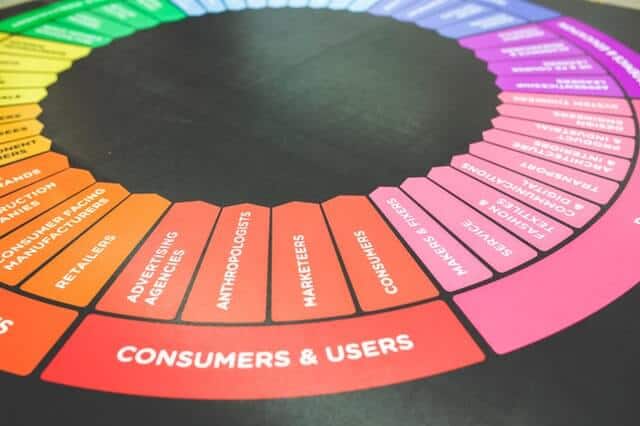By Ashley Preen
February 27, 2019
Did you know that sales software and CRMs can make all the difference when it comes to your sales? In fact, startup businesses with superior customer management systems can see their overall productivity double when using superior CRM software, in addition to software such as Quickbooks and Xero. However, before we can go into detail about how startup businesses can benefit from CRM systems, we must first define them!
According to UK CRM powerhouse Salesforce, a CRM is a “customer relationship management system (CRM) which helps to manage customer data.”
A CRM is designed to support your company’s sales management team, allowing you to more easily access customer data and manage your relationships with your customers. For example, a CRM can provide you with actionable insights, integrate with social media channels, and increase overall team communication.
Many CRM systems these days are cloud-based, meaning that your customer database is accessible remotely via a range of digital devices and apps such as the Zoho app, which is popular with startup businesses here in the UK.

With a CRM system, you are able to keep your customers’ data centralised and up to date, track your interactions and exchanges with your customers, and manage your customer accounts. Businesses use these systems in order to increase their CLV (customer lifetime value) and ensure that they deliver customer service which is tailored to the individual consumer.
Furthermore, with all the data that is generated by startup businesses these days, it would be a crime to let it all go to waste! CRM systems allow you to centralise all of your customer data, putting it in one easy-to-see place. In the past, companies used to place their data in disparate systems, making it hard to analyse and cross-reference. Now, however, they are able to more easily make data-driven decisions which help them to grow.
So, you might be asking yourself: why

As part of our services, we use software such as Quickbooks and Xero, integrating them into the work systems of our clients. We also frequently recommend that clients use CRM systems as part of our software integration process, encouraging our clients to optimize their efficiency and productivity going forward.
Your relationship with your customers is crucial to the growth and sustainability of your company, so it makes sense that you should use a state of the art system in order to manage these crucial relationships. 74% of companies claim that CRM systems have improved their access to customer data, so you can rest assured that these products have been tried and tested by your competitors.
So, how do CRMs benefit your business?
Did you know that 79% of marketing leads never convert into sales? This is largely because they become lost in disparate systems or workflows which are not organised efficiently in order to maximise sales. With a CRM system, you are able to effectively track information about your leads, providing your salespeople with warmer leads straight from the get-go.

Think about it – even if you have generated a bunch of leads, are your salespeople aware of which ones are the hottest? Do they know which ones are the most recent? Do they have any background knowledge on the customer which they can leverage when they’re trying to sell? If the answer is no, you’re quickly going to fall behind more savvy startup businesses.
With startup businesses, time is most certainly of the essence, especially when you’re trying to get a foothold in a niche or local market. For this reason, you need to maximise your productivity in any way possible, reducing any time which your team wastes. Although systems such as Xero and Quickbooks are useful for speeding up your bookkeeping, CRMs are useful for speeding up your conversions.
By using a CRM platform, you’re able to integrate all of your marketing tools into one single place, using email campaigns, social media engagement, and marketing automation to follow up with leads and prospects who are statistically likely to convert. Rather than taking a stab in the dark with your long list of leads, wouldn’t you prefer to arm your salespeople with all the data they need before they go into battle with a reluctant lead?
According to Articulate Marketing, CRM systems are one of the best ways to create warm leads for your sales team, so there’s no reason not to maximise your chances of interacting with people who are probably going to like your product and do business with you. CRMs will allow you to build key relationships with customers who you may have never come across otherwise.
Did you know that businesses in the US lose $1.6 trillion every year due to customers switching when they receive poor customer service? If you want to create deep and longlasting relationships with your customers, then you need to demonstrate that you can deliver top-notch customer service on a consistent basis.
So what do you need to do for this? Well, you need to develop a close understanding of your customer’s pain points and general behaviour, showing that you’re working towards a mutually beneficial relationship for the two of you. Secondly, you need to ensure that you don’t “love and leave” your clients – you need to demonstrate customer service which is continually strong throughout their lifetime with you.
For example, startup businesses should not be forgetting key information about their oldest customers, as this could cause them to become irritated and doubtful about your commitment to the business relationship. 70% of your customer’s journey is dictated by how they feel they are being treated, so you can expect poor customer service to lead to low customer retention rates over time.

A CRM system can help you to keep track of your customers’ pain points, preferences, and goals, allowing your team to tailor their service towards the unique needs of your individual customers. For instance, you can record notes in your CRM system when dealing with customer complaint over the phone, allowing the next person who takes over in the future (if the customer calls again) to be fully aware of any past problems, as well as the customer’s preferred way of doing things.
CRM systems also make it easier for your sales teams to approach customers with solutions which are relevant to their needs. For instance, it would be pointless for us to recommend our business tax advice service to a consultancy company, but we might recommend our small business accountants service to them instead, tailoring our offers to their individual needs as a client with certain skills and pain points of their own.
You could also offer special promotions and products when you are able to track key customer information with a CRM. For instance, you could offer services which are tied to a company’s business interests at the exact time that they might need it. For example, if we know that a client of ours has had their company tax sorted but they still need their personal tax returns to be filed with HMRC, we might remind them before the January deadline that this is due.
Startup businesses can be brilliant at cultivating intimate relationships with their customers at first, but this becomes much more difficult as you scale and grow your startup. As you get bigger and your list of customers becomes longer, it becomes hard to keep track of who’s who. Dunbar’s number is a principle which states that 1 person can only realistically keep track of 150 people in their life. Once you’ve factored in your friends, family, and colleagues, you might find that you don’t have much of that 150 left to remember all your clients on a personal level.
As a result, you need a CRM system which acts as a reminder to both you and your sales team, enabling you to pick up where you left off with your customer relationships and interactions. This way, your customers won’t feel like they’ve been forgotten about, and you’ll continue to forge strong longlasting relationships which feel more intimate for your customers.

According to a popular business book called Marketing Metrics, startup businesses and enterprises have a 60-70% chance of selling to existing customers, but only 5-20% chance of selling to new prospects. Many startup businesses get too caught up in the whirlwind of growth, scaling at an alarming rate while trying to grab new clients from every possible angle.
However, too much growth can quickly become unsustainable, and has often been the killer of startup businesses which had eyes bigger than their stomachs. As stated above, you are much more likely to sell products to your existing customers than you are to new prospects and cold leads, so remember to water your garden before venturing off to find new flowers for it.
Acquiring new customers is time-consuming and expensive, but it’s something you’ve got to do if you’re taking your startup business to the next level. Once you’ve got your small business accountants service sorted and you’re taking care of your existing customers, then you’re ready to start acquiring new ones.
You can offset your new customer acquisition costs by making sales to your existing customer base who are already loyal followers of your business. By using a CRM system which is rich in data, you can increase your chances to upsell, cross-sell, and renew contracts with your existing customers. This gives you the funds necessary to spend time acquiring new leads, effectively decreasing the cost of making sales.
With a CRM system such as Microsoft Dynamics 365 CRM or Zoho, you are able to improve your overall sales efficiency by choosing leads which are most likely to convert, thereby reducing your average acquisition costs. As mentioned, you can also increase up-sell and cross-sell opportunities because you are able to assess a customer’s current/historical data and offer add-on services which could suit them better.
Instead of wasting a bunch of time on cold calls, is it not better to tap into the opportunities that your existing customers are presenting to you? Even if you don’t manage to upsell them, they’re still generating revenue for you, so what do you have to lose? Selling to your existing customers is the most budget-friendly way to increase revenue, and CRM systems make it easier than ever before for startup businesses.
Here’s a quote from a Harvard Business Review study which you might find interesting to ponder:
“Fifty-two percent of high-performing salespeople identified themselves as power users who take full advantage of their companies’ CRM technology.”

Software integration can invariably help you to increase performance and productivity in your workplace, whether it’s through financial and bookkeeping software like Quickbooks and Xero, or through CRM solutions which are often employed by startup business who seek business advice from experts such as ourselves.
Once you adopt the best technological solutions, you are able to free up your team to perform more value-adding tasks for your business. This why automation is such a huge trend right now – businesses want to minimise the amount of non-productive clerical work and menial tasks that their key employees are forced to perform
Professionals spend nearly 50% of their time looking for information rather than creating value for their employer. However, with CRM systems at their disposal, rockstar high-performing employees are already provided with all the information they need, so they don’t have to waste time looking for historical data on a lead or a customer. This gives your employees more time to connect with your customers and woo them into additional sales.
This can also have a knock-on effect on your customer service. For instance, if your work systems are carefully integrated with financial software and customer relationship management solutions, then your employs can speed up customer interactions and find solutions to customer problems more quickly.
This all helps to retain your existing customers, and with 64% of customers wanting to shop with companies who can meet their needs in real-time, you cannot afford to be wasting precious customer interaction time on tasks which could be handled by an automated system. Every additional minute that ticks by could easily cost you a customer, and that’s the last thing that new startup businesses need!
According to Defaqto Research, 55% of consumers would pay more for a better customer experience. That’s not the kind of number that you can afford to ignore – startup businesses need to make sure that their customers have pleasant experiences at all touchpoints of their business.

It doesn’t matter if you create the best product in the
world – if you provide poor customer service, then your customers are slowly
but surely going to leave you for someone who treats them better. A CRM helps
you to improve your customer service and think more closely about the
customer’s experience with your company.
For instance, if you’re going to upsell your existing customers on a potential
service, a CRM can help to advise you on how long it has been since you last
had an interaction with that customer. We all know the feeling of getting one
too many cold calls or spam emails in our inbox – it becomes annoying and the
customer may leave you as a result.
Additionally, tailoring the customer experience can help to boost sales, so you should be using all the CRM tools at your disposal to ensure that your customers’ needs are met. The more that is noted down on a customer’s notes and historical data, the better your salespeople and customer service team are going to be able to tailor their service to the customer’s individual needs.
Here at Pearl Accountants, we believe that startup businesses should take advantage of all the software and technology that is available on the market to help startups succeed and grow sustainably. That’s why our small business accountants recommend using software such as CRMs, as well as financial software such as Quickbooks and Xero which help to make the bookkeeping process easier.
Alas, whether it’s bookkeeping or customer relationship
management, there is an endless supply of technology out there just waited to
be harnessed by startup businesses such as your own. Increasing your
productivity and reducing your downtime is one of the most important things
that you can do for your small business, especially when you’re looking to
scale and grow without hiring a huge team that you cannot afford to compensate.
Need business or tax advice for your company? Speak to a member of our consultancy team today!